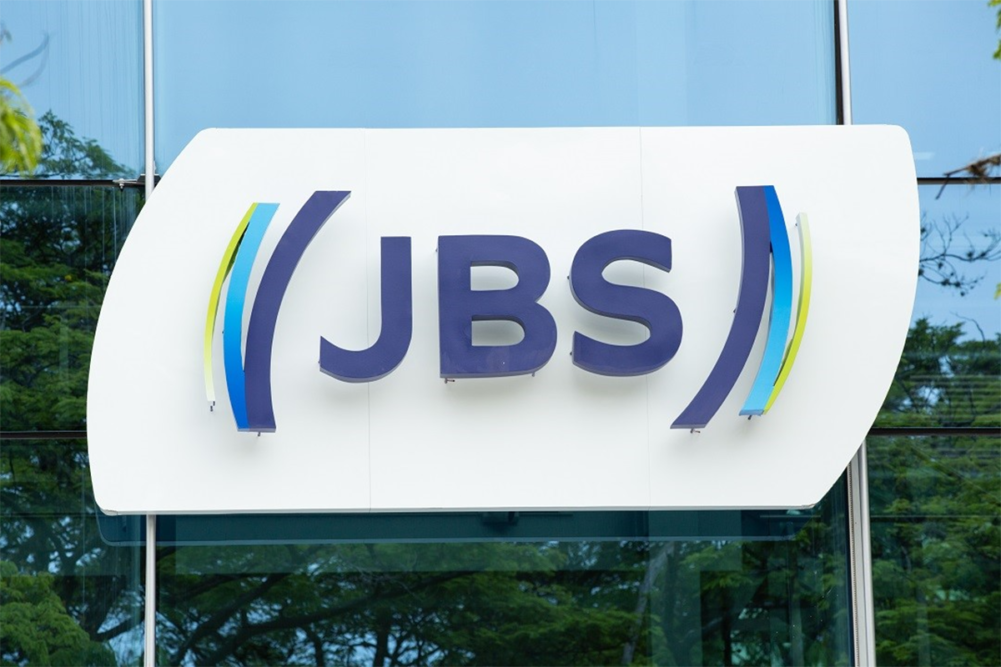SÃO PAULO — JBS S.A. reported a solid first quarter for the fiscal year 2024 ended March 31, 2024, with a net income of $332.3 million. The company remains optimistic about its path to recovery, as all its business units boasted improvements over the previous year with the exception of JBS Beef North America, which faces an industrywide challenging cattle cycle.
Consolidated net revenue for the quarter rose 8% to $18 billion compared to $16.7 billion the year before. During the period, about 76% of JBS’ global sales were in domestic markets in which the company operates, while 24% were exports. Adjusted EBITDA reached $1.3 billion, a 212% jump year over year.
“The results from this quarter emphasize our confidence in JBS’ long-term strategy, focused on expanding our global multiprotein platform and consolidating our portfolio of strong brands and value-added products,” said Gilberto Tomazoni, chief executive officer of JBS S.A., in the earnings report. “In this regard, we have made various investments over the past few years that will begin to yield results.”
Tomazoni attributed the strength of the results to the importance of geographical and protein diversification. As part of the company’s investments, JBS will open a new in natura (“in natural”) pork plant and prepared foods plant this year in Brazil. In April, the company announced it will double the capacity of its Campo Grande beef facility. Additionally, in Saudi Arabia, JBS is finalizing its third halal value-added products facility. Then, in Spain, JBS will begin operations at the Bio Tech Foods cultivated protein plant.
With several improvements implemented throughout 2023, JBS said Seara stands out in the quarter. Seara recorded a net revenue of $2.1 billion, a 4.8% increase from last year. The business unit reported a significant increase of 10 percentage points in the EBITDA margin in the first quarter compared last year, which JBS said is due to better operational indicators, lower grain costs, better balance of supply and demand, and the ramp up process of new plants.
JBS Brasil performed well with net revenue of $2.9 billion, a 22% jump year over year. The growth was mainly attributed to the favorable cattle cycle, resulting in greater availability of animals for processing.
As for JBS Beef North America, net revenue increased 6% year over year to $5.6 billion, while it reported a negative adjusted EBITDA of $9.8 million and a negative EBITDA margin of 0.2%. Beef margins in North America continue to be pressured by the cattle cycle, especially in a seasonally weaker quarter.
“In the first quarter of last year, we faced several internal challenges, in addition to the turnaround in the cattle cycle in the USA, which negatively impacted the number of animals available for slaughter,” JBS said in the earnings report. “Thus, throughout 2023, several actions were taken to improve profitability, such as adjustments in the commercial department, implementation of projects aimed at operational improvement, optimization of the product mix, among other initiatives. All of these implemented actions will be fundamental to face a year that will continue to be challenging.”
Within the domestic market for JBS USA Pork, the first quarter was marked by growth in average wholesale prices as consumption demand shifted from beef to pork. Net revenue reached $1.9 billion, a 6% increase from last year.
Pilgrim’s Pride Corp.’s net revenue improved 5% to $4.4 billion compared to the same period the previous year. First quarter profitability continued to improve in the United States mainly due to greater operational efficiencies in chicken cuts used as raw materials, the improvement in industry fundamentals, and the ongoing and added partnerships with key customers.
Considering the company’s Australia business unit, overall net revenue increased 4% to $1.5 billion. Sales in the beef business grew 18% compared to the previous year due to growth in volumes in both domestic and export markets. Net revenue for the pork business remained stable year over year.
“We remain focused on what we can control, to become increasingly competitive in each market where we operate,” Tomazoni said. “For this reason, we have an absolute focus on our operations, cost management, productivity increases, portfolio optimization, and price — regardless of geography and economic fluctuations. We are confident that the strength of our platform, combined with our financial performance, and our commitment to excellence and innovation, will allow JBS to continue its growth trajectory, generating value for our stakeholders and the communities in which we operate.”

